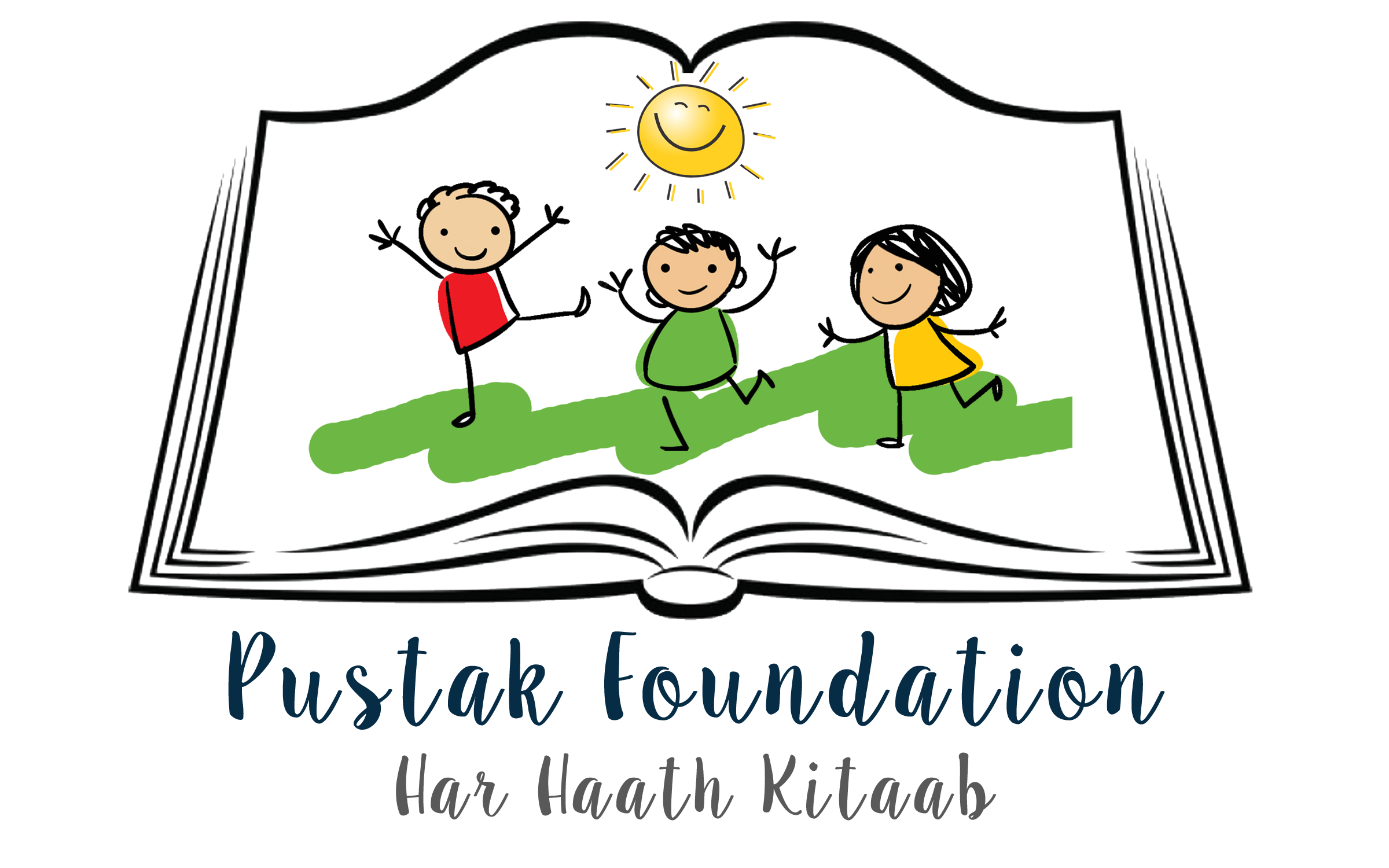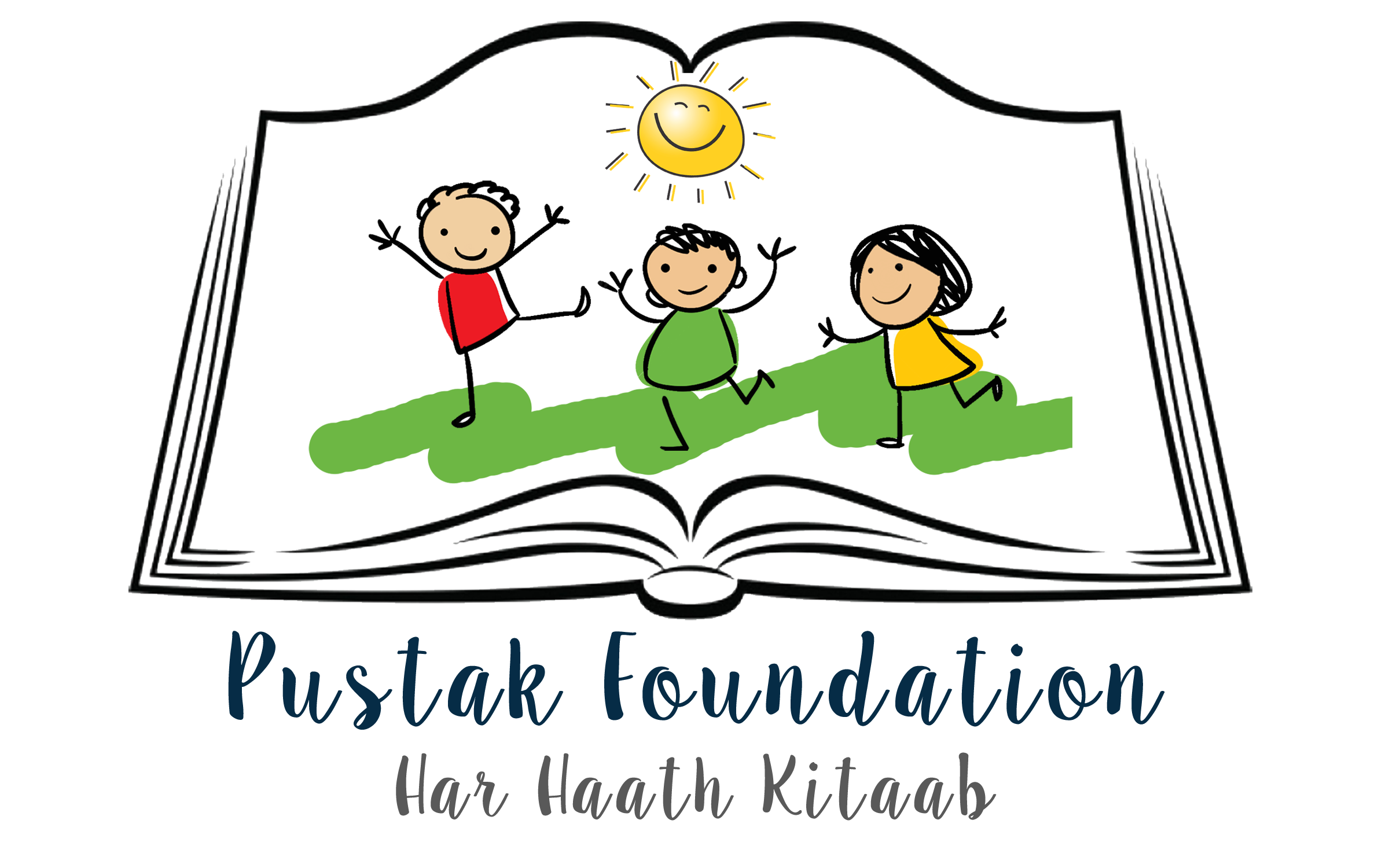Literacy outside walls -Pustak Foundation

What is your first thought when you think of education? More often than not, an image of school immediately pops up in our minds when we hear the word. But is learning actually synonymous with schools? In the age of advancement, we are surrounded by more knowledge than an individual could ever consume in his lifetime. There are constantly more facts to be read, skills to be learned all the while competition squashes out creativity. Amidst this upgraded education, there is a need to look back and reflect on what is true learning. And to contemplate, it’s essential to look upon the place where learning happens- School. Within four walls, a timetable, mounds of books, a handful of teachers with hard-earned certifications, and rows filled with disciplined students. This is a picture that comes to mind when we think of schools. A place where students are the focal point of rigorous training on which a staggering amount of knowledge is placed in hopes of them becoming the best in society. In this hypercompetitive world, being the best is a high-stakes job that schools take upon themselves. Therefore, to embellish the curriculum, more subjects and content is added to an already exhausted and burdened student. Even in the argument of progressive schools and innovative teaching, true liberty is never achieved.
Freedom of choice
Looking beyond the mind-numbing curriculum exists the idea of an Austrian philosopher, Ivan Illich’s philosophy. Borrowing from his thoughts a school worthy of promoting true learning must be envisioned. Such a school would not be confined within four falls or even a building. It would move constantly from place to place depending on what and where the people want to learn. Ivan believed that schools are not the be-all-end-all of education. The individual is in charge of his learning. Therefore, since school is just a medium to make the community come together and empower them to learn amongst themselves, it does not necessarily need to be fixed. There would not be desks to sit upon for hours, neither a teacher who imparts knowledge nor compulsory attendance or the obligation to attend classes. People should want to come to the school willingly on whatever days that they feel like learning something. There would not be a timetable to follow, just enthusiastic learners deciding a time to meet.
Value for Certifications?
Although some would argue denying the importance of a qualified teacher, the whole point of a free school is the freedom to choose every aspect of learning including whom the students want to learn from. Students would not only encompass children but adults too, it would not be an age-restricted institution. Deciding on whom to learn from would be different for every student, one group could learn from an adult while an adult could learn from someone younger. It would depend on who has the skills or knowledge the learner desires. As there would be no prior qualifications needed, people from all kinds of social backgrounds would get the opportunity to come forward and share their ideas. A curious community that will be open to listening to people from different sources would be flexible to social change. Also, different teachers would mean different pedagogical approaches, and so people could pick and adapt to their teaching styles. Since every learner is learning something different from the other person, the need for a timetable becomes redundant.
Ideas taking shape
When you envision such a world, does a library not fit into this theme of free learning? A place with hundreds and thousands of books on every imaginable subject. Where there is no obligation to attend, no time limit or a routine, where you could come anytime you feel like learning. A book filled with knowledge you could take anywhere with you to learn. Although free school encompasses a lot more than this, an accessible library is one important part of it. A place where people indulge in self-directed and self-paced learning. A place polar opposite of direct instruction and passive schooling in conventional classrooms. It would be someplace easy to start stepping into the world of free school, and later moving onto more complex aspects. A space that fosters a pleasure for learning. Natural and independent learning trumps rule-focused instructional learning every time. Maybe it sounds chaotic, but true learning indeed is spontaneous, unplanned, and unstructured. As there will be no mandatory attendance, the desire to learn would be intrinsic and not motivated or influenced by outside factors. Since the school would not be fixed, there would be no recurring costs and everyone could attend and learn. The main aim of this school would be to make the learners confident, independent, and capable. Essentially, students would be designing their learning pathways, deciding and changing things on the way as they move further. Thus, not becoming dependent on the four walls of schools for learning and becoming capable of innate creativity & untapped potential.
Education is the most powerful weapon which you can use to change the world.
– Nelson Mandela











